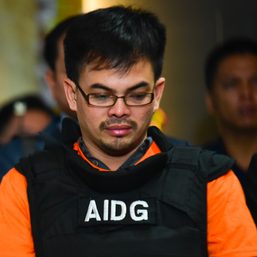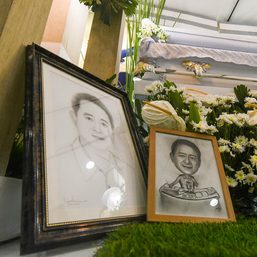SUMMARY
This is AI generated summarization, which may have errors. For context, always refer to the full article.
![[OPINION] From campus reporting to community impact: My Rappler journalism fellowship story](https://www.rappler.com/tachyon/2024/06/Campus-journo-post-fellowship-experience-blog-edit.jpg)
My inclusion in the Aries Rufo Journalism Fellowship Program from December 2023 until March 2024 allowed me to explore stories in the broad community I belonged to. Before we were given writing assignments, we were exposed to many training workshops, such as how to look for stories that matter, report on disinformation, the importance of practicing digital hygiene, and the basics of fact-checking.
Throughout the fellowship, I published eight community-focused stories, exploring themes like culture, crime, social issues, and development initiatives in Baybay, Leyte, among others. Additionally, I wrote five fact-checking articles, which significantly enhanced my ability to assess anything that I come across online.
Highlights and learnings
The highlight of my work during the fellowship was undoubtedly my investigative piece addressing the pervasive issue of medical disinformation on TikTok. I take great pride in this article, particularly because, just days after its publication, TikTok responded by removing all the flagged videos I reported.
While this may seem like a modest victory to some, I learned in the process of investigating this story that the impact of disinformation in social media platforms like TikTok is closer than you think. It’s likely already affecting your families, friends, and personal networks.
Reporting on such significant stories, which intersect with broader themes like artificial intelligence and media representation, reinforces my belief in the power of journalism to shape how people interact with social media. And it feels great to utilize that power effectively through my platform.
Further, it draws us closer to achieving a safer social media space for everyone. We’re not yet close, and we’re very much far away from that goal, but what’s important is that we’re moving.
One of the hardest parts of the program was connecting to your primary sources when writing articles that required experts’ opinions.
I’m from Leyte, so I only have a few connections when getting information from key establishments in the metro like the Department of Health, the Food and Drug Administration, and TikTok. I sent out over 20 interview requests to various professionals, including medical experts, linguists, historians, and TikTok influencers. Not all would respond, and waiting could be infuriating, especially with a deadline to beat. Still, Rappler was always supportive, assisting fellows like me in building connections and networks with other people.
Making ripples
My role as the executive editor of Amaranth, VSU’s official student media organization, has also given me the platform to impart the knowledge I learned from the program to my fellow campus journalists. We now have our own fact-checking unit, where we train our staff to scrutinize and verify information, beginning with identifying false or misleading university memorandums or announcements that could potentially confuse students.
As campus journalists, we have always been confined within university or school grounds in terms of coverage. It’s not that we’re not aware of other stories beyond the campus corners, but we tend to isolate ourselves from what we know about and what we think is relevant to our main stakeholders, the students. It’s like we’re building our own echo chamber. But not anymore, at least for me as a campus journalist.
The Aries Rufo Journalism Fellowship Program has opened doors for campus journalists like me to spotlight some issues in our communities that are less covered by the mainstream media. I had one such story – Baybay, Leyte, is using kamote to fight malnutrition among children. Another one was bringing to the people one of highly controversial historical debates about the identity of people in Eastern Visayas: the Waray-waray language. Or did you know that tree seedlings would make for a great pasalubong?
These stories reflect a community with a rich culture that most people are not aware of. Bringing these stories to life and to the public allowed me to become sensitive to the wants, needs, expectations, norms, and values of the community where I belong.
I am proud to have been part of the first batch of campus journalists in the program, and I hope to inspire more student journalists to leverage their platforms to bring peripheral stories into the spotlight.
Campus journalism, after all, is still journalism. Its core mission is to inform and engage the public. It’s time we look beyond our familiar surroundings and cover the stories and issues in the less explored corners of our communities. – Rappler.com
Jerry Yubal is a campus journalist from the Visayas State University in Baybay City Main Campus. The executive editor of Amaranth, he is also an Aries Rufo Journalism Fellow of Rappler for 2023-2024.
Add a comment
How does this make you feel?








![[OPINION] You don’t always need a journalism degree to be a journalist](https://www.rappler.com/tachyon/2024/06/jed-harme-fellowship-essay-june-19-2024.jpg?resize=257%2C257&crop=287px%2C0px%2C720px%2C720px)




There are no comments yet. Add your comment to start the conversation.